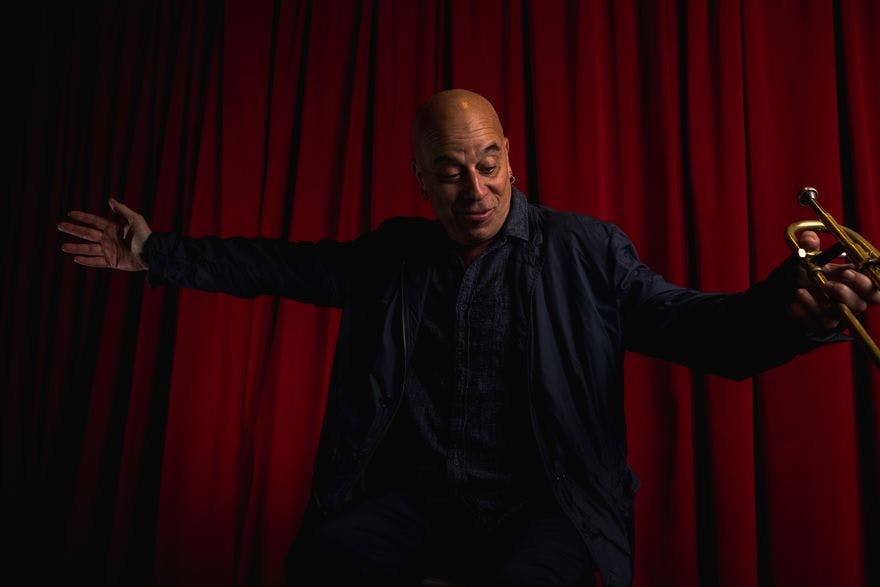
“Musicians are boundaryless,” says Steven Bernstein, trumpeter, composer, arranger, and bandleader. As an instructor at the School of Jazz, part of the College of Performing Arts within The New School, he hopes to instill this thought into the minds of his students. “Jazz students should learn to play everything, from Count Basie to Coltrane, Appalachian music by the Stanley Brothers to Grateful Dead songs, Caribbean to South African music, even the soundtrack to a James Bond movie.”
By encouraging students to play a variety of genres, Bernstein aims to foster young artists' individual and professional growth. He finds that mastering music in a number of styles sensitizes students to the elements that differentiate jazz from other types of music. He feels that familiarity with all kinds of music develops students'abilities, freeing them to experiment and improvise. Career musicians can benefit from this flexibility, Bernstein explains. They can join non-jazz bands, score a film, or play sold-out venues with rock bands.
To help his students discover common threads across genres, Bernstein has centered a class on an original concept he calls the “universal melody.” The universal melody is often found in Western music and can be used as a key to decode songs. Bernstein's theory comes from a lifetime of breaking down music into its building blocks and analyzing the components using Schenkerian analysis with scientific precision. Over time, he has identified a melodic undercurrent running beneath Western music that, once learned, enables performers to take new musical paths in their own work or collaborate with a whole new set of fellow artists.
“I came to The New School because its progressive values match my own. I was given the freedom to pull from my professional experience and create a unique class, which is an incredible approach to education. It allows me to teach students what they really need to succeed, not just theory or hypothetical situations-which of course are important, too-but that fluidity is necessary!”
Throughout his long career, Bernstein has committed himself to moving fluidly through genres, and he attributes his success to mastering the skill. He explains that originality is the essence of jazz, and often a jazz musician is charged with deconstructing and reconstructing a melody. When an art form is steeped in revolution and innovation, it's easy to forget how important knowing the basics can be.
After 35 years as a professional musician, and with four GRAMMYs under his belt, Bernstein says, “I wanted to break all the rules, and did, but learning the universal commonality found in most Western music is something I wish I'd learned earlier in my career.” Luckily, New School students can start their education now.